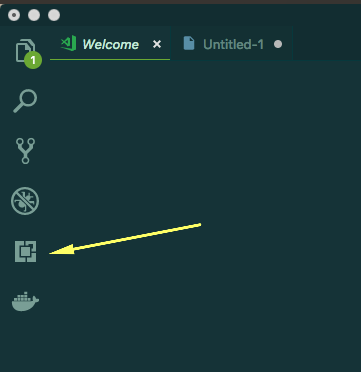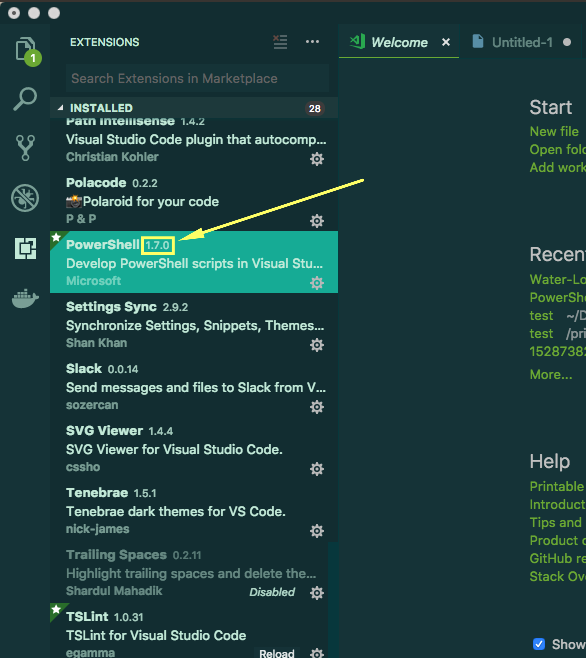Welcome to the PowerShell GitHub Community! PowerShell is a cross-platform (Windows, Linux, and macOS) automation and configuration tool/framework that works well with your existing tools and is optimized for dealing with structured data (e.g. JSON, CSV, XML, etc.), REST APIs, and object models. It includes a command-line shell, an associated scripting language, and a framework for processing cmdlets.
Although this repository started as a fork of the Windows PowerShell codebase, changes made in this repository are not automatically ported back to Windows PowerShell 5.1. This also means that issues tracked here are only for PowerShell Core 6 and higher. Windows PowerShell specific issues should be reported with the Feedback Hub app, by choosing "Apps > PowerShell" in the category.
If you are new to PowerShell and want to learn more, we recommend reviewing the getting started documentation.
You can download and install a PowerShell package for any of the following platforms.
| Supported Platform | Download (LTS) | Downloads (stable) | Downloads (preview) | How to Install |
|---|---|---|---|---|
| Windows (x64) | .msi | .msi | .msi | Instructions |
| Windows (x86) | .msi | .msi | .msi | Instructions |
| Ubuntu 22.04 | .deb | .deb | .deb | Instructions |
| Ubuntu 20.04 | .deb | .deb | .deb | Instructions |
| Ubuntu 18.04 | .deb | .deb | .deb | Instructions |
| Ubuntu 16.04 | .deb | N/A | N/A | Instructions |
| Debian 10 | .deb | .deb | .deb | Instructions |
| Debian 11 | .deb | .deb | .deb | |
| CentOS 7 | .rpm | .rpm | .rpm | Instructions |
| CentOS 8 | .rpm | .rpm | .rpm | |
| Red Hat Enterprise Linux 7 | .rpm | .rpm | .rpm | Instructions |
| openSUSE 42.3 | .rpm | .rpm | .rpm | Instructions |
| Fedora 35 | .rpm | .rpm | .rpm | Instructions |
| macOS 10.13+ (x64) | .pkg | .pkg | .pkg | Instructions |
| macOS 11+ (arm64) | .pkg | .pkg | .pkg | Instructions |
| Docker | Instructions |
You can download and install a PowerShell package for any of the following platforms, which are supported by the community.
| Platform | Downloads (stable) | Downloads (preview) | How to Install |
|---|---|---|---|
| Arch Linux | Instructions | ||
| Kali Linux | .deb | .deb | Instructions |
| Many Linux distributions | Snapcraft | Snapcraft |
You can also download the PowerShell binary archives for Windows, macOS, and Linux.
| Platform | Downloads (stable) | Downloads (preview) | How to Install |
|---|---|---|---|
| Windows | 32-bit/64-bit | 32-bit/64-bit | Instructions |
| macOS (x64) | 64-bit | 64-bit | Instructions |
| macOS (arm64) | 64-bit | 64-bit | Instructions |
| Linux | 64-bit | 64-bit | Instructions |
| Windows (ARM) | 64-bit (preview) | 64-bit | Instructions |
| Raspbian (ARM) | 32-bit/64-bit | 32-bit/64-bit | Instructions |
To install a specific version, visit releases.
For best results when upgrading, you should use the same install method you used when you first installed PowerShell. The update method will be different for each platform and install method. For more information, see Installing PowerShell.
Dashboard with visualizations for community contributions and project status using PowerShell, Azure, and PowerBI.
For more information on how and why we built this dashboard, check out this blog post.
GitHub Discussions is a feature to enable free and open discussions within the community for topics that are not related to code, unlike issues.
This is an experiment we are trying in our repositories, to see if it helps move discussions out of issues so that issues remain actionable by the team or members of the community. There should be no expectation that PowerShell team members are regular participants in these discussions. Individual PowerShell team members may choose to participate in discussions, but the expectation is that community members help drive discussions so that team members can focus on issues.
Create or join a discussion.
Want to chat with other members of the PowerShell community?
There are dozens of topic-specific channels on our community-driven PowerShell Virtual User Group, which you can join on:
Awesome PowerShell has a great curated list of add-ons and resources.
| Linux | Windows | macOS |
|---|---|---|
| Instructions | Instructions | Instructions |
If you have any problems building, consult the developer FAQ.
| Azure CI (Windows) | Azure CI (Linux) | Azure CI (macOS) | CodeFactor Grade |
|---|---|---|---|
You can clone the repository:
git clone https://github.com/PowerShell/PowerShell.gitFor more information, see working with the PowerShell repository.
Please look into the Contribution Guide to know how to develop and contribute. If you are developing .NET Core C# applications targeting PowerShell Core, check out our FAQ to learn more about the PowerShell SDK NuGet package.
Also, make sure to check out our PowerShell-RFC repository for request-for-comments (RFC) documents to submit and give comments on proposed and future designs.
For support, see the Support Section.
PowerShell is licensed under the MIT license.
License: By requesting and using the Container OS Image for Windows containers, you acknowledge, understand, and consent to the Supplemental License Terms available on Docker Hub:
Please visit our about_Telemetry topic to read details about telemetry gathered by PowerShell.
The governance policy for the PowerShell project is described here.
This project has adopted the Microsoft Open Source Code of Conduct. For more information, see the Code of Conduct FAQ or contact [email protected] with any additional questions or comments.


